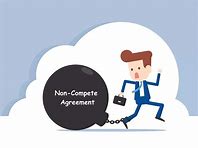Below is a review of the posts on Facebook and LinkedIn from the past week. You can check out the full posts by clicking on the links.

The post on Sunday 6/2/2024 told us Gap settles US charges of job discrimination based on immigration status. The settlement requires Gap, a San Francisco-based clothing retailer, to pay a $73,263 civil fine, provide back wages to two employees who lost work because of its practices, and upgrade its employee training worldwide. The settlement is without admission of liability and ends a multi-year investigation.
The 1986 statute Gap was accused of violating is identified in the post. The exact practices that were at issue are also noted in the post. The Justice Department said Gap’s reliance on an electronic program used for employment eligibility contributed to the discriminatory conduct.
Gap’s comment on the settlement? See the post.
TAKEAWAY: The employer is responsible for all software it uses – know what the software does, and how it does it, is a must to avoid potential legal liability.

The post on Monday 6/3/2024 noted the National Labor Relations Board civility policy decision stumps Starbucks. Yep, again. The charge was filed in September 2022 after Starbucks fired an employee for “yelling” at work. This has to do with enforcement of Starbucks’ civility rules and the employee’s Section 7 rights. Let’s look at the background.
The controversy stems from a store in Michigan where two employees were fired separately on what has been held to be unlawful grounds — so the decision must now be reversed. Workers United (the Starbucks’ union) initially filed two cases with the NLRB in September 2022 and January 2023. The NLRB issued a consolidated complaint on September 22, 2023. Details on the actual complaint are in the post (and it goes beyond violation of Section 7 rights). As to the first worker, Starbucks said they were in violation of the company’s Mission and Values (the support for which is noted in the post) and had to be terminated. As for the other worker, Starbucks again cited the Mission and Values and the “How We Communicate” policy. What it said the worker did is in the post as well as how/if Starbucks followed its own corrective action policy. Both employees were active in union activities.
The NLRB’s decision condemns Starbucks’ “unfair labor practices” and details which section of the Act was violated as to the each of the workers (see the post). Now Starbuck must reinstate one worker, make up for any lost earnings and benefits, compensate her for adverse tax consequences, and expunge any references to this incident from her records. And there’s more – see the post for the non-monetary relief – which is just as important and will affect many more company workers.
Will this be the last clash between Starbuck and the NLRB? Probably not given the rise in unionization of its store locations – see the post for more details on that exponential increase.
TAKEAWAY: Union workplace or non-union, Section 7 of the National labor Relations Act applies to all employees. Know what rights employees have under this law.

The post on Tuesday 6/4/2024 was more on the FTC ban on non-compete agreements: definitions, prohibitions, requirements, and employer considerations. This is a big deal! If your head has been in the sand (meaning that you have not read our posts of Monday 5/6/2024 or Monday 5/13/2024), then know that on May 7, 2024, the FTC published a final rule that effectively bans all non-compete agreements between employers and “workers” as “unfair method[s] of competition” and requires employers to refrain from enforcing most existing non-compete agreements. Let’s go into more detail as this will have a huge reach.
First, know to what the ban applies – see the actual language as listed in the post. There are also some exceptions, but they will not apply to most employees. The rule also requires that employers send notice to employees with non-competes that they are no longer enforceable.
And speaking of enforceability, the rule is being challenged in 2 lawsuits. One is pending in federal court in Texas; see what we await in that case as noted in the post. If that court does not issue a nationwide stay, employers should start to plan to implement the rule as of its effective date, September 4, 2024 (the genesis of the effective date is noted in the post).
OK, so what does the rule actually do? It purports to ban all non-competes for just about all employees of for-profit employers, preempting state law on the issue. Non-competes are defined in the rule as is “worker” – see the post. Note how broad is the FTC’s definition of a non-compete and compare it to prior versions of the rule as discussed in the post. The rule also provides a few examples of things that would now be prohibited; again, see the post. And what about non-solicitation agreements? The FTC’s definition of “non-compete” is so broad that this too may come within the prohibition. See the discussion on this in the post. Also, and oh so important, is that the rule is retroactive, applying to existing agreements (i.e., those for which the parties bargained for consideration prior to execution). Again, there are exceptions, but they are vey limited (as detailed in the post).
There is debate about interpretation of part of the FTC’s definition of a non-compete provision: one that “functions to prevent a worker form seeking or accepting employment.” It is objective (as described in the post) or subjective (as also described in the post)? This is not just semantics (see the post for details). No matter the interpretation, litigation is expected if the rule becomes effective at some point.
Some employment agreements contain provisions like forfeiture or clawbacks (see the post for an explanation of each). The questions will be whether those too fall within the FTC’s expansive definition of a non-compete provision (and are therefore banned). And what if those provisions are part of an ERISA plan? See the post for the interaction between the FTC rule and ERISA.
Another piece of this is how the rule affects trade secret protection. While it does not specifically say anything, there is bound to be a devastating effect because non-compete and other provisions are put in place to ensure that employees do not use trade secrets to unfairly compete and more as detailed in the post.
On what basis does the FTC think it has the authority to ban ono-compete agreements? See the post for how it has expanded the alleged scope of its jurisdiction to cover this. If federal courts do not stay the rule, this expands the FTC’s authority to the detriment of State powers. The questions that must be answered on this are in the post.
Employers may have skipped straight to this part: what should they do now? There are options. First is to do nothing. Wait. The rule is not slated to be effective until September 4, 2024, so there is time. The rule may be stayed by a court prior to that date, leaving in place any such agreements that currently exist. Employers also have other options which are discussed in the post.
TAKEAWAY: As of now, the FTC ban on non-competes will become effective 9/4/2024 – employers must be ready and know how they will move forward if the ban is not stayed. Get an employment lawyer involved NOW!

The post on Wednesday 6/5/2024 explained that HOA wants owner to have a $1M insurance policy to charge EV in garage. You know that part of life in a community association is adhering to the covenants, restrictions, bylaws, and rules and regulations, right? Well seemingly not all owners know that.
The homeowner at issue lives in CA. There is a statute that protects EV owners, no matter where they live; the relevant portion of the law is quoted in the post. This owner wanted to charge their EV in their garage. The HOA did not stop them, but said they needed a $1M liability policy and to add the HOA as an additional insured. The HOA’s basis is in the post. The issue is then who owns the garage (i.e., is it part of the unit or it is a [limited] common element). See the post for more on this issue.
Apparently the owner tried to get the requested insurance, but could not.
TAKEAWAY: What restriction does – or should – your condo or homeowners’ association have on EV charging within the community? Discuss with a community association lawyer.

In the post on Thursday 6/6/2024, we saw an HOA denies allegations of forcing out elderly veteran. NOTE: You must read the entire article before passing judgment. The HOA is disputing claims that an elderly veteran may be forced out of his home due to HOA fees. Bob Reinisch told the local tv station that he cannot afford to pay a new $500 annual fee plus a one-time $3,500 assessments to the HOA. So he asked the HOA to exempt veterans over the age of 70 from the fees. The HOA declined. The fees are due July 1.
The tv station reached out to the HOA a few hours before it aired the story on the Friday before Memorial Day. The next day the HOA responded and asked that the story be rescinded. While the tv station would not do that, it did agree to post the HOA’s response. The verbatim response is in the post.
In part the HOA wanted to ensure that what was reported was correct. The HOA notes that Reinisch was present at a meeting where the potential assessment was introduced (but not at a later meeting and is therefore unaware of all of the facts). The HOA also noted that the passing of the owner mentioned by Reinisch happened 5 weeks prior to the meeting referred to by Reinisch and therefore was not correlated to special assessment. And the owner who passed had voted in favor of the special assessment. The HOA also talked about why a special assessment was levied. That, and the phases the Board went through prior to assessment, are in the post. The HOA clarified that in no way is Reinisch being forced out of his home if he doesn’t pay the assessment. The HOA explained his options. The HOA also addressed the claims made by Reinisch and noted that all of Reinisch’s fees had been waived for the 23 years that he lived there until this special assessment came up. The HOA also explained why it did not approve his special assessment waiver request.
TAKEAWAY: All members of a community association are responsible for payment of assessments (regular and special) unless exempted from payment. Exemptions may be dealt with by statute or the Governing Documents, but cannot be granted wily nilly, regardless of the veteran status or other situation of the requesting owner.

The post on Friday 6/7/2024 snarked shameful: tech company slammed (and settled suit) for job posting seeking only white applicants. An information technology services company’s job listing invited only whites and U.S.-born people to apply – and caught the attention of the U.S. government and others. Now the DOJ and DOL have reached settlement agreements with Arthur Grand Technologies Inc. based on that 2023 posting.
Arthur Grand Technologies’ job advertisement generated national headlines – the actual language is in the post. But the company denied approving the ad. What is said about the ad posting is in the post. DOJ investigated and determined the company violated the Immigration and Nationality Act (on the basis noted in the post). DOL determined that the company violated Executive Order 11246 (which is detailed in the post).
Part of the settlement with DOJ is that the company will pay a $7,500 civil penalty. The settlement with DOL also involves a monetary payment (see the post).
TAKEAWAY: Not approving or not knowing of conduct by your agent may well lead to liability for your company. Be alert – and keep your employment lawyer on speed dial.

Finally, in the post yesterday 6/8/2024, we saw that Rocket Mortgage inks $3.5M overtime pay settlement with bankers. The underlying claims were brought in 2023 by a group f current and former mortgage bankers who alleged that the company failed to pay them overtime wages in velation of the FLSA. Their specific allegations are noted in the post. Rocket Mortgage denied liability or wrongdoing. The settlement was arrived at during mediation.
This is only the latest large company inking a multi-million-dollar settlement in an overtime pay case. Last year, Goole agreed to a large settlement – see the post for details on the settlement and underlying claims. And in 2021, store managers employed by Jimmy John’s and its franchisees agreed to a $1.8 million settlement of allegations that they were misclassified as exempt employees (which had the impact on their wages noted in the post).
This is all important in light of the time remaining before the DOL’s final rule increasing the minimum annual salary threshold for overtime pay eligibility is effective. The new threshold is noted in the post – as well as future increases and their amounts.
TAKEAWAY: Employers must know how to properly classify and pay employees – get advice from an employment lawyer if you are not sure. Don’t just push ahead without knowing or caring – that will make it so much harder on you when it comes to agency enforcement.

 York, Pennsylvania 17403
York, Pennsylvania 17403